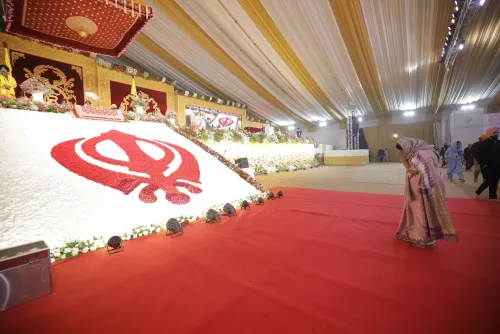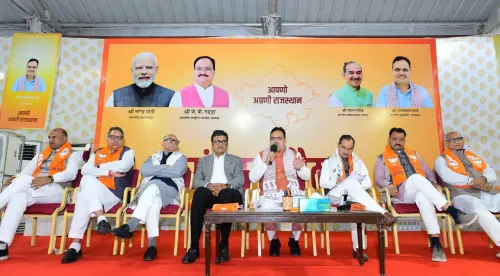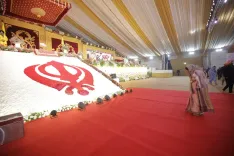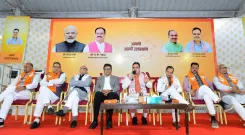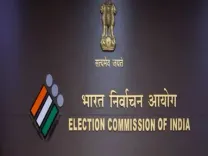Are India and Singapore's Ties Rooted in Shared Values and Mutual Interests?
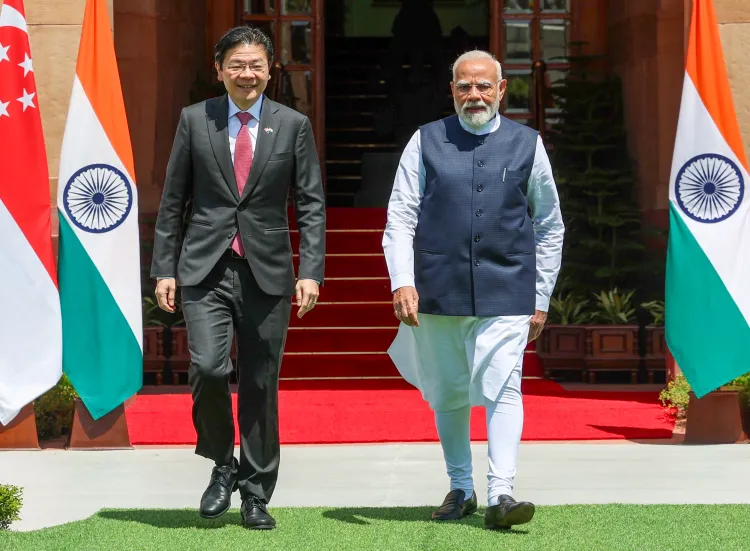
Synopsis
Key Takeaways
- India and Singapore celebrate 60 years of diplomatic relations.
- Trade partnership is significant, with Singapore being India's largest trade partner in Southeast Asia.
- Focus on collaboration in advanced manufacturing and green shipping.
- Plans for enhanced cooperation in AI and digital technologies.
- Establishment of a National Centre of Excellence for Skilling in Chennai.
New Delhi, Sep 4 (NationPress) Prime Minister Narendra Modi stated that the bond between India and Singapore transcends mere diplomacy, being firmly anchored in shared values and a collective vision for peace and prosperity.
While addressing a joint press conference with Singaporean Prime Minister Lawrence Wong, PM Modi warmly welcomed him on his inaugural visit to India since taking office. He emphasized the significance of this visit as it coincides with the 60th anniversary of diplomatic relations between the two nations.
He referred to Singapore as a crucial pillar of India's Act East policy, expressing confidence that both nations will collaborate with ASEAN to further their Joint Vision for stability in the Indo-Pacific region.
Recalling his visit to Singapore in 2024, where the two nations elevated their relationship to a Comprehensive Strategic Partnership, PM Modi noted that cooperation and dialogue have intensified over the past year.
"Currently, Singapore is our largest trade partner in the Southeast Asia region, with significant investments flowing from Singapore into India," he stated.
The Prime Minister highlighted that defense ties between the two countries are continuously strengthening and praised the vibrant people-to-people connections.
"We have crafted a comprehensive roadmap for the future of our partnership. Our collaboration will extend beyond traditional sectors to include advanced manufacturing, green shipping, skills development, civil nuclear energy, and urban water management," he mentioned.
Emphasizing the deepening bilateral relations, PM Modi remarked, "Our connection surpasses diplomacy. This is a meaningful partnership grounded in shared values, driven by mutual interests, and aimed at a common vision for peace, progress, and prosperity."
He identified technology and innovation as foundational pillars of the partnership and announced plans to enhance cooperation in AI, quantum technologies, and other digital advancements.
PM Modi cited UPI and PayNow as successful instances of digital connectivity between the nations, announcing the addition of 13 new Indian banks to the collaboration.
The leaders also agreed to conduct a timely review of the Bilateral Comprehensive Economic Cooperation Agreement and the Free Trade Agreement with ASEAN.
Both leaders inaugurated Phase II of the JN Port–PSA Mumbai Terminal (BMCT) together.
He reiterated that advanced manufacturing, green shipping, skills development, civil nuclear energy, and urban water management will be focal points of future collaboration.
PM Modi also stated that Singapore would assist in establishing a National Centre of Excellence for Skilling in Chennai, while highlighting the significance of Gujarat's GIFT City in linking the stock markets of India and Singapore.
He emphasized the role of state governments in these bilateral relations, recalling President Tharman's visit to India in January, and mentioning the visits of several Indian Chief Ministers to Singapore. GIFT City in Gujarat now serves as a new bridge for stock market connections.
He discussed the impact of the Semiconductor Ecosystem Partnership Agreement signed last year, which has provided a new direction for R&D.
"The active involvement of Singaporean companies in the Semicon India Conference was significant. Singapore's support in establishing a National Centre of Excellence for Skilling in Chennai will help in developing skilled workforce in advanced manufacturing," he concluded.



